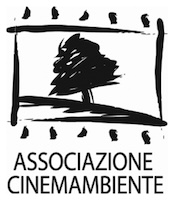La Croisade
Directed by
Abel and Marianne, a wealthy Parisian couple, discover one day that their 13-year-old son Joseph has sold his electric scooter. And that's not all: also missing from the roll call are mum's Dior dress, dad's collector's watches, antique books, coats and various valuables. In the course of the frantic inventory of the missing items, little by little Joseph's plans are revealed, and they are not just his: he and hundreds of other teenagers around the world are collecting money to finance a mysterious project. They have decided to save the Planet.
The brainchild of the well-known screenwriter Jean-Claude Carrière, who died in 2021, this is a film that tells the battle for the environment at the height of a child, highlighting the gap between adult indifference to the climate crisis and the anguish of a generation that wants to save the world and its future.
On a return trip from New York, Jean-Claude Carrière announced to me on the plane that he had come up with a very good idea for a film scene. He often had many ideas above the clouds. In Paris he read me this scene, which would later become the first sequence of The Crusade. I said to him: «What nonsense! Kids who are passionate about ecology!». I thought it was an adult idea put into the heads of children and it bothered me, it didn't seem right. I talked about it with some friends, read the scene to them and they all agreed with me that it sounded false. Jean-Claude was a little offended, he was convinced of his idea. Three months passed and one day I heard on television that a Swedish teenager had started a hunger strike mobilising for the climate crisis because she couldn't stand it any longer if nobody did anything. It was Greta Thunberg. I called Jean-Claude. «Are you in front of the television?» I asked him. He hadn't seen anything yet. I told him what was happening. «It's extraordinary», I told him. «Exactly like the scene you wrote». Four months later there were demonstrations of kids everywhere. Jean-Claude was among the first to take up ecology. He also wrote a book on the subject (Le Pari, 1972) from which all the current issues emerge. He advised me to hurry up and make the film, otherwise I would have given the impression of running behind events. I am glad that The Crusade looked like a ‘live action’ film, but if I had listened to Jean-Claude immediately, I would have been ahead of my time! I was too cowardly, or perhaps too un-visionary. But at that time, this collective, almost anthropological leap of youth had not yet occurred.







